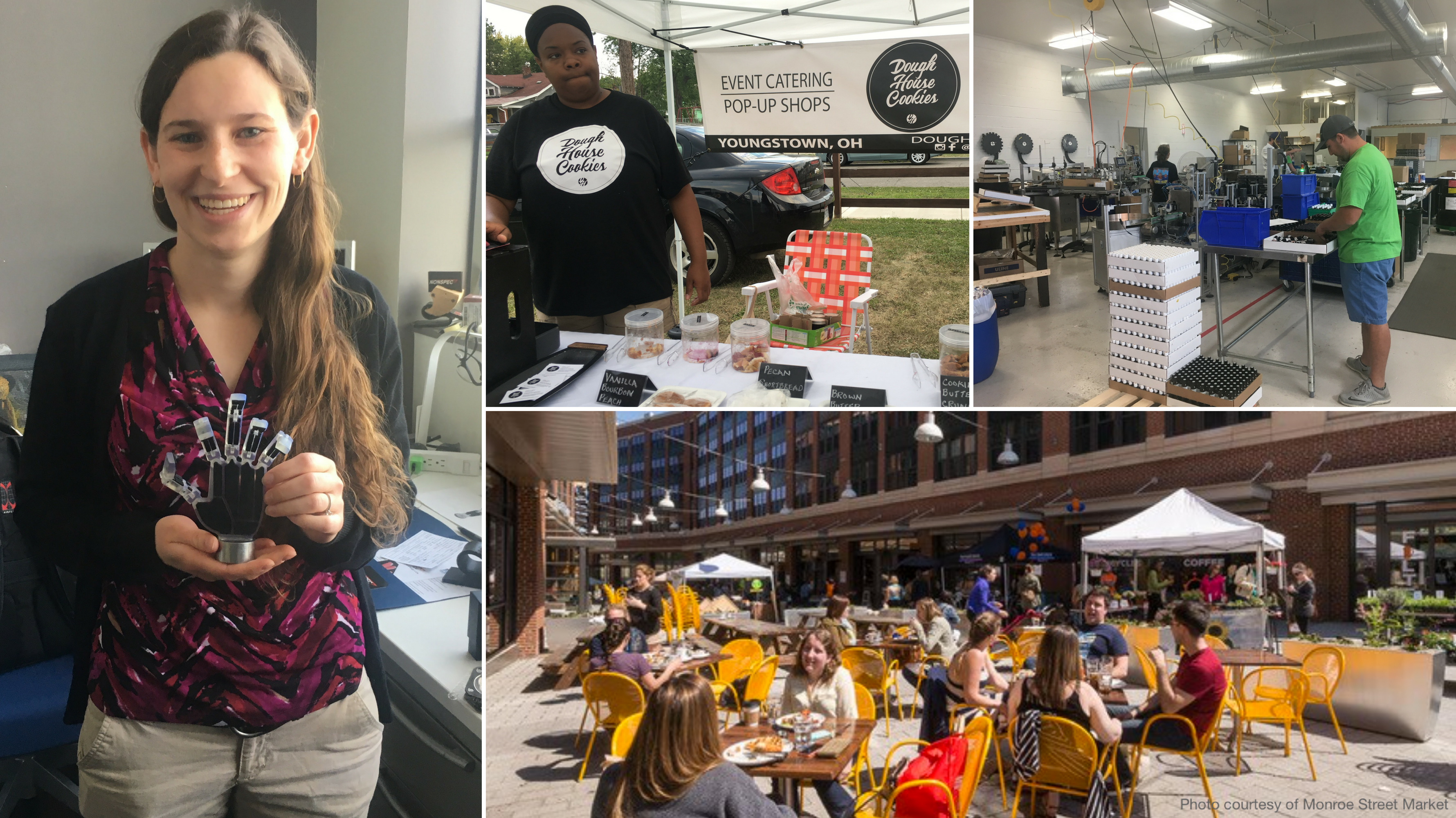
News
By Smart Growth America, June 26, 2018

Over the past few weeks, we've gotten a lot of questions about the free, technical assistance Smart Growth America is offering in partnership with the U.S. Economic Development Administration and Recast City. If you're interested in applying, read this FAQ, watch our webinar about the assistance, and visit the main TA page: smartgrowthamerica.org/manufacturing. If you still have questions, feel free to email us. Applications can be submitted online and are due this Friday, June 29 by 5 p.m. EDT.
1. Question: Regarding the application agency—can a community improvement district, a business improvement district, or some other political subdivision be the lead agency and applicant here?
Answer: Yes. You must nonetheless, fulfill all the requirements indicated in the application, which includes a letter of endorsement from the chief elected official of the jurisdiction. The application also provides the opportunity to indicate more generally the level and breadth of support from governmental leadership and major stakeholders, which will be a factor in evaluating proposals.
2. Question: The Selection Criteria for the technical assistance grant includes a point on “Commitment to Equity,” and refers to “economically distressed” communities. Our city could benefit from the technical assistance being offered. We have an under-performing section of town with brownfields and high vacancy for our existing office and industrial space. We would like to encourage and attract entrepreneurs and small-scale manufacturing to those existing spaces. We would also like to redevelopment the brownfields area into a vibrant extension of our town center with housing, businesses such as small-scale manufacturing and recreational opportunities for all. We also have a goal of increasing the diversity of housing, jobs, and community participation for all community members. Our city as a whole, however, would not be considered a distressed community. Our question is: Would we be excluded from consideration because our overall median household income is high?
Answer: No, an application would definitely not be "knocked out of consideration" on the basis its median or per capita income level. It would enter with the same possibilities as all the others, and be judged on the quality of the responses in the submission.
There is no criteria with regard to a jurisdiction's median income—neither minimum or maximum. Cities, towns, counties of every level of income and wealth have been awarded technical assistance in the past, and will continue to. Of course, in any jurisdiction there are very few "median income" residents. By definition, half the population is below the median level. And just about every jurisdiction contains within it residents and neighborhoods who do not enjoy great advantages, and may be vulnerable to change. "Commitment to Equity" is about how that part of the community is addressed. Are their interests and opportunities taken into consideration? Are they being engaged in the process, and included in plans going forward? We view equity as a value to be addressed in every community, not something that applies only to a subset.
3. Question: We have a lot of community partners and I am wondering what the best way to show their support would be. Should we get letters of support from neighborhood associations, developers, etc. in addition to the letter of support from the mayor? What about other elected officials or agency heads?
Answer: Note that item #3 in the application includes the following:
"Describe the envisioned involvement of the community, developers, the business community, civic organizations, philanthropy, advocacy groups, other stakeholders and the public in the technical assistance. Who will be the project champion(s) and what steps will they be able to take to implement the economic and community development solutions once assistance is received?"
Thus, in addition to the letter of support from the chief elected official, you will want to describe the nature and involvement of all relevant community partners (public and/or private sector), and convey their commitment to the project. If you indicate the kinds of groups with which you have commitments, you don't need to provide letters.
4. Question: Is a written agreement with the successful proposers required or expected? Are there requirements regarding records retention, community outreach and engagement, publicity and marketing, etc.?
Answer: Acceptance of the award of technical assistance does not involve great formality. Those receiving the awards will have relatively minimal reporting requirements. We will want to hear something back at a few intervals (6-months post, 12-months post), indicating actions or developments to follow through on the plan that will be created through the engagement. There is no requirement for any cash contribution from the recipient; the only costs incurred would be those for local staff time, and possibly the provision of meeting space.
5. Question: Will a multi-neighborhood proposal be eligible for consideration for this opportunity? (Rather than a focus on one specific neighborhood, can we propose two or three key areas of the city where light-manufacturing is facing development pressure from residential and commercial users?)
Answer: Proposals are not limited to one neighborhood. It is important that there be some geographic focus (as opposed to an amorphous, non-specific interest in the topic). Whether that is one specific quarter or sector, or several neighborhoods does not matter so much as that there is a sense of focus, an identifiable locus for this activity.
Related News

© 2025 Smart Growth America. All rights reserved
Site By3Lane Marketing








